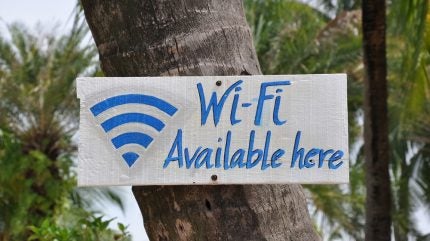
In today’s hyper-connected world, superior Wi-Fi service is no longer a luxury in hotels; it’s a fundamental expectation of guests.
Mittal Parekh, Senior Director at RUCKUS Networks, CommScope, provides deep insights into how cutting-edge Wi-Fi technology enhances the guest experience and drives loyalty.
Here’s how advancements in Wi-Fi technology are setting new standards in the hospitality industry.
Evolution of wi-fi in hospitality
Wi-Fi technology has significantly evolved to meet the demands of modern, tech-savvy hotel guests.
Parekh explains, “Today’s hotel guests expect flawless high-speed internet connectivity as a fundamental service. Wi-Fi has undergone a complete overhaul within the hospitality industry to meet these expectations.”
The introduction of Wi-Fi 7 marks a substantial leap forward, offering “extreme speeds, low latency, high reliability, and increased capacity,” thus delivering exceptional user experiences.
How well do you really know your competitors?
Access the most comprehensive Company Profiles on the market, powered by GlobalData. Save hours of research. Gain competitive edge.

Thank you!
Your download email will arrive shortly
Not ready to buy yet? Download a free sample
We are confident about the unique quality of our Company Profiles. However, we want you to make the most beneficial decision for your business, so we offer a free sample that you can download by submitting the below form
By GlobalDataThis advancement supports the insatiable demand for faster and better network connectivity for both work and leisure.
Parekh highlights the role of advanced network management in enhancing guest satisfaction, “Hotels have adopted Quality of Service (QoS) technologies to manage and prioritise network traffic effectively, ensuring that all users and services on the network receive the bandwidth they need without compromising other functions.”
Impact on guest satisfaction
The superior capabilities of Wi-Fi 7 significantly contribute to enhanced guest satisfaction.
“Wi-Fi 7 delivers up to 4.8 times greater network speed and supports twice the data density of previous iterations,” states Parekh.
This allows guests to enjoy high-demand activities like streaming 8K videos, engaging in latency-sensitive AR/VR applications, and participating in high-quality video conferences without interruption.
The introduction of Multi-Link Operation (MLO) and the integration of IoT technologies such as Matter and Thread further enrich the guest experience.
Parekh notes, “This not only increases the capacity of the network, allowing more devices to connect without degradation in service, but also enhances reliability ensuring that guests always have the best available connection.”
Strategies to increase revenue through wi-fi
Parekh outlines several strategies that hotels can implement to leverage Wi-Fi technology for revenue generation.
Offering tiered Wi-Fi services, where basic connectivity is free and higher bandwidth is available for a fee, caters to a broader range of guest needs and directly generates additional revenue.
Moreover, “Hotels can utilise the Wi-Fi login page as a marketing tool to promote hotel services such as spa treatments and dining reservations,” Parekh suggests.
Location-based services through Wi-Fi also offer targeted promotions, potentially increasing uptake of hotel amenities.
Integrating Wi-Fi with property management systems allows hotels to deliver a customised experience, enhancing guest satisfaction and loyalty. “The customised experience can follow each guest as they stay at multiple properties within the same brand umbrella,” he adds.
Successful integration examples
Highlighting successful implementations, Parekh shares, “The Passalacqua in Lake Como, named ‘The World’s Best Hotel’ in 2023, boasts one of the world’s most advanced Wi-Fi networks with our Wi-Fi 7 solution.”
This installation exemplifies how high-quality Wi-Fi can enhance guest services and amenities without lag, disruptions, or network congestion.
Another example is the Royal Garden Hotels in the UK, where the deployment of RUCKUS AI reduced Wi-Fi disruptions by 90% and decreased the cost of handling incidents significantly.
“RUCKUS AI offers recommendations to continuously optimise their network,” Parekh explains.
Through these insights from Mittal Parekh, it’s clear that superior Wi-Fi is not just about connectivity; it’s a strategic asset that enhances guest experiences, increases loyalty, and drives hotel revenue.
As Wi-Fi technology continues to evolve, its integration into the hospitality industry promises to unlock even greater efficiencies and opportunities for personalisation and revenue growth.



